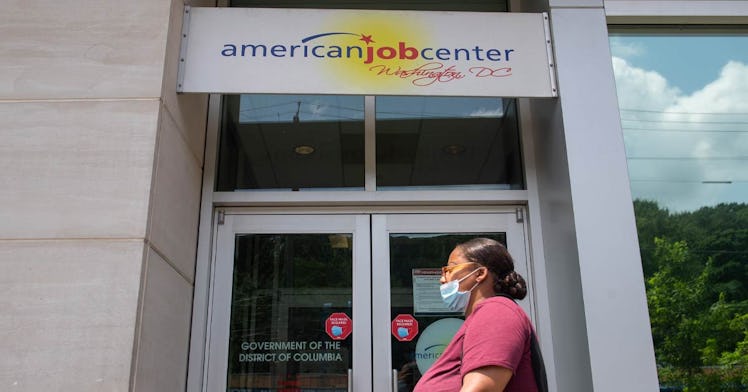The Pandemic Cost Women Hundreds of Thousands in Lifetime Earnings, Study Says
A new study has found that the pandemic has set working women back hundreds of thousands in lifetime earnings. That's a problem.

The recession that hit the United States amid COVID-19, a pandemic that has killed nearly 600,000 Americans, has been at times referred to as a “shecession.”
There’s little reason to doubt why: jobs reports, jobless claims, and economic studies have found that women bore the brunt of the unthinkable lifestyle ad economic changes that Americans have had to undergo over the last year and change. As schools and daycare centers closed, as hospitality sectors and restaurants shuttered, women were the most likely to lose their paying jobs and go home to parent their children full-time. And it’s just what happened. In the month of December alone, for example, there were 156,000 lost jobs, all lost by women. 16,000 men gained work in that same month. And though the economy is creaking back to life as people get vaccinated and as more businesses can operate safely, women are still struggling. According to Newsweek, there are 4.5 million fewer women in the workforce than at the start of the pandemic. These numbers are a combination of economic reality (more women occupy the hospitality sector, for example, a part of the economy hit particularly hard by a deadly, highly contagious virus) wage gaps (in dual partnerships, if one parent has to stay home to oversee remote schooling, the one earning less will rationally do so) and the gendered aspect of labor (women still report doing way more at home than men do, despite men stepping up.) And now, the cost of these massive shifts in the economy has been given a dollar sign, and it’s not pretty.Per a new study exclusively done for Newsweek by an economist named Michael Madowitz at the Center for American Progress, women have lost out on hundreds of thousands of dollars in future earnings due to the pandemic. A woman earning a median income of $47,299 before the pandemic, a solid middle-class wage, will lose over a quarter of a million dollars in income over her lifetime, his study found, if she returns to work full time by next year. But more likely, she will be out until 2024, the research asserts, given the consulting firm McKinsey’s estimates that it will take a full three years for the economy to employ women at numbers seen before the pandemic — and in that case, her lifetime losses could amount to almost $600,000. Those numbers only compound over time and at higher income levels. For the average college-educated woman, her losses would grow to nearly $800,000 overtime, and more quickly, than a woman making around $48,000. The loss of women in the workplace during COVID-19 amounts to some $885 billion. total Of the findings, per Newsweek, Madowitz said, women “will eat the cost of the pandemic for the rest of their working lives.”Realistically, of course, it’s not just about women losing out on future earnings. It’s also about the economic loss the rest of the country will experience over time, and those losses to the GDP will also be massive. All of this work echoes previous work on the pandemic and women: research from the National Partnership for working families has shown that if women who did unpaid caregiving in 2020 were paid minimum wage, they would have had collective earnings of up to $416 billion; and that if, say, the federal government provided paid parental leave, the economy would be $500 billion stronger because parents can stay attached to the workforce when a disaster of any kind (from a deadly pandemic to an unexpected family illness to giving birth) and take care of their children at the same time.The reality is, that the United States government needs to take bold action on women in the workplace, and they need to do so now. Otherwise, the effects of 15 months of tragedy will reverberate across the rest of their earning lives — and it won’t affect just them. It will also affect the rest of us.